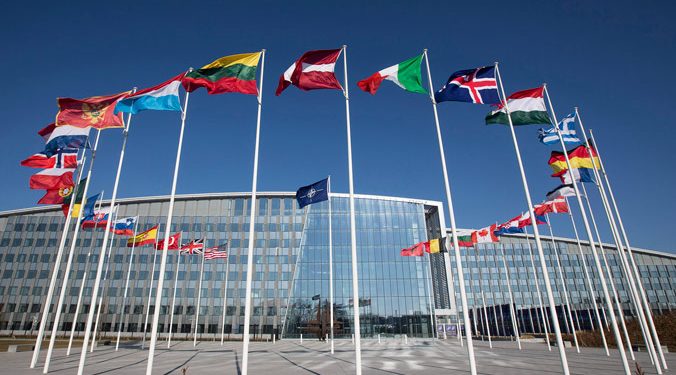Edi Rama
There are few more honourable pages in Albania’s history than its lonely example of heroism in the face of the destruction of European Jewry during World War II. Nobody asked our grandparents to risk, and often sacrifice, their lives to save people from the Holocaust, yet countless Albanians – Muslims, Christians, and atheists – did just that. Thanks to the Albanian code of honour, which demands all of us to offer shelter to strangers in need, Albania was the only country in Europe with more Jews at the war’s end than at its start.
Immediately afterward, we experienced persecution firsthand. After prevailing over our external enemies, we encountered an equally vicious one at home: an oppressive totalitarian regime that jailed, tortured, and murdered those it perceived as enemies.
We lived what the people of Afghanistan now face as the Taliban consolidate power throughout the country. We lived in a state that sealed its border and persecuted dissidents and their families, just like the Taliban are expected to do with their adversaries. For nearly 50 years, we aspired to have the freedom that Afghans tasted over the last 20 years and which they now seem certain to lose.
Today, Albania is a member of NATO, enjoying the benefits and sharing the burdens of cooperation. Given our history, it is right that we were the first country in the world to offer shelter to thousands of refugees fleeing the Taliban. All NATO members must recognise their responsibility.
Yes, there are important questions about what is happening in Afghanistan and why, and how current events will shape the alliance’s future. But while it is imperative to have those dispassionate conversations, there is only one thing to do now: act together to save as many lives as possible. We must uphold the values of the North Atlantic Alliance and shared by all democratic countries. That means not turning our back on people whose lives are now at risk because they believed in us.
Until a few days ago, NATO members were the main source of support for the people of Afghanistan. We cannot recede like shadows, alongside the ideals, principles, and promise of freedom and democracy that we made over two decades. The world’s most powerful military alliance, built to uphold those ideals with the threat of force and the force of example, cannot become a spineless entity in the eyes of the Afghan people and the millions of people elsewhere who crave to live in a free, just, and democratic society. All of us, our community of countries, must give hope, shelter, and a new life to all of those who trusted us, worked for us, and fought for the promise of the future we represented.
When we agreed to shelter Afghan refugees, we did it because we take seriously our obligations to our allies. But, more importantly, we did it because of who we are. Only 30 years ago, we were the Afghans on the Adriatic coast, desperately trying to escape the ‘Red Taliban’ of Tirana, and who during the Kosovo war opened our doors to shelter a half-million refugees escaping the ethnic cleansing of Serbia under Slobodan Milošević. We are well acquainted with all sides of tyranny, both when left in the hands of a brutal regime and when seeking to build a new life as refugees in other countries. Those experiences have taught us that it is not danger that creates fear, but fear that creates danger.
Albania is neither large nor rich. It is not detached from the complex realities of Europe, including how immigration is often perceived as a burden. We know that fear of strangers affects polling, elections, and the commitments of parties and politicians seeking to win office, and we respect the difficult choices all other countries have to make. But, when confronted with life-or-death choices concerning people whom we are honour-bound to help, our path is obvious.
To fail to act now would mean to turn our backs on our own history, and to forget what we have learned from the tragedies of the past century. It would be to neglect the memory of many fallen soldiers and to erase the countless sacrifices undertaken over 20 long years on the battlefield, while the Taliban and the cruelties they embody remind humanity once more that evil never dies.
Albania is ready to handle its share of the burden that all NATO countries must carry together. But now I ask: if even Albania, the alliance’s poorest member, can manage its share of the burden, who among other NATO member states cannot? And what political excuse can be powerful enough to defeat our basic human obligations?
There is too much finger pointing and not enough hand-raising for humanity. The founding principle of NATO is that an attack on one is an attack on all. So, too, should a humanitarian challenge as big as the NATO is leaving behind in Afghanistan be embraced by all.
The writer is Prime Minister of Albania. ©Project Syndicate






































